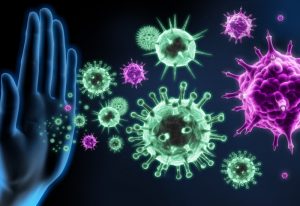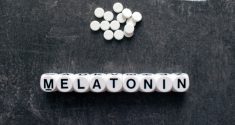It’s nothing new to have an illness or viral scare, however, when epidemics grow to become pandemics such as the novel coronavirus, also known as COVID-19, cause for concern rises and preventative measures increase worldwide.
Although the current COVID-19 pandemic will cause only mild illness in most individuals infected, both the fast-spreading and growing global death toll of this disease are causing fear and mandated lockdowns in many communities worldwide. As the global medical research community focuses its efforts on finding effective treatments and a vaccine for this virus, the research cannot come soon enough, as most of the treatments in development will not be available to help those who are currently infected.
However, several studies suggest that existing drugs or supplements, such as melatonin, may provide promising results for infections such as COVID-19, leading some professionals to wonder if doctors will soon be prescribing melatonin for coronavirus and other serious viruses in the future.
Old Remedies for New Diseases

Using existing medications to treat new illnesses is a concept as old as modern medicine. This approach may be especially important in emerging epidemics such as the one we are seeing now. A class of medications called broad-spectrum antiviral agents, or BSAAs, are just the latest “recycled” treatments to be tested on people infected with relatively new diseases.
Because these medications have already been proven safe for human use and shown promise with other viruses, they are already available in many markets. In addition to BSAAs, scientists have also found that certain antibiotics and even certain anti-parasitic medications may help to treat coronavirus. Until we have a new drug targeting this virus, it makes sense to use the weapons that are already in our arsenal.
Due to the fact that it can take decades to develop a medication and prove that it is safe for humans, many recent outbreaks have been illnesses without a targeted treatment. However, this does not mean that the medical community is entirely helpless. Although we have no medication specifically targeting this year’s novel coronavirus, there are many existing medications that are showing promise. Melatonin, a natural supplement often used for sleep, is one of these promising treatments.
In past studies with viral infections, melatonin was found to help with peripheral symptoms and concerns and thus aiding in the prevention and treatment of specific bacterial and viral infections. Front and center in past viral research is melatonin’s ability to inhibit pro-inflammatory cytokines, reduce oxidative stress and support the immune system, which synergistically affords protection against the complications induced by the former Ebola virus pandemic.
How Melatonin May Help with Coronavirus
Melatonin is one of many treatments currently being studied to help treat or protect against viruses such as the current COVID-19. Best known for its role in sleep, this hormone is incredibly safe and also has been found to possess powerful anti-inflammatory benefits. Because many of the deadliest effects of the coronavirus are due to inflammation, it makes sense that it may be a promising adjunct treatment. Although the research is preliminary, adding melatonin to the treatment plan may help reduce symptoms and improve survival rates in people infected with the virus.
Melatonin is not an anti-viral medication and does not directly kill viruses, but seems to reduce their severity. So how can it help people with COVID-19? Although the research is still preliminary, melatonin appears to have several positive effects in people with coronavirus and other epidemic viral diseases.
Melatonin reduces inflammation, which can contribute to respiratory failure and other systemic effects of the illness.
Melatonin supports the body’s cells, by promoting the growth of cells under normal circumstances. Discretionary actions of melatonin allow it to benefit normal cells and tissues while supporting the body’s defenses against pathological cells and tissues.
In addition, research has found evidence that melatonin appears to stop apoptosis — a process in which cells infected with a virus actually kill themselves in an attempt to stop the spread of disease. Although this apoptosis response can be helpful in some diseases, it can cause even more misery in some illnesses such as coronavirus.
Melatonin is known to stimulate the immune system. Although it does not directly attack viruses, it helps our body’s own defenses to act more efficiently. This can lead to fewer symptoms and ultimately a better chance of surviving this feared disease.
Although melatonin is not a cure-all, it shows promise as a safe and powerful weapon that can be used in conjunction with other existing treatments. With a virus as virulent as COVID-19, infected patients need all of the help that can be offered.
Natural Approaches to Illness

In addition, it is important to focus primarily on avoiding these illnesses in the first place. If a coronavirus outbreak is in your community, avoid public places and use good sanitary measures such as hand-washing and covering your mouth and nose when you cough or sneeze when you go out. Also, look to use natural remedies such as melatonin to keep your immune system as strong as possible to increase your chances of fighting off any illnesses to which you are exposed. In the case of infectious disease, knowledge and prevention is the best cure.







